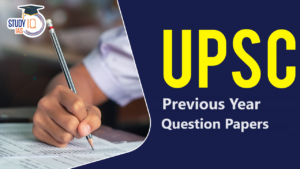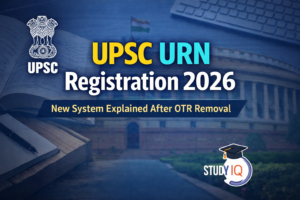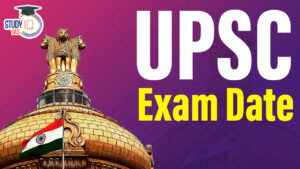Q12. Ashok is Divisional Commissioner of one of the border districts of the North East overthrowing the State. A few years after being elected back, the Military has taken over the neighbouring country after country, especially civil government. Civil war situation is prevailing due to rebel groups in the last two years. However, the internal situation further deteriorated due to intense fighting over control of certain populated areas near its own border. between military and rebel groups, civilian casualties have increased manifold in the recent past. In the meantime, in one night Ashok got 200-250 information from the local police guarding the border check post that there is a border. Mainly women and children trying to cross over to our side of this group are also about 10 soldiers with their weapons in military uniform begging who want to cross over. Women and Children are also crying for help. A few of them are injured and bleeding profusely and need immediate medical care. Ashok tried to contact the Home Secretary of the State but failed to do so due to poor connectivity mainly due to inclement weather.
(a) What are the options available with Ashok to cope with the situation?
(b) What are the ethical and legal dilemmas being faced by Ashok?
(c) Which of the options do you think would be more appropriate for Ashok to adopt and why?
(d) In the present situation, what are the extra precautionary measures to be taken by the Border Guarding Police in dealing with soldiers in uniform?
| Approach: Introduce the case, highlighting Ashok’s ethical dilemma in managing a border crisis amid civil war in the neighboring country, balancing humanitarian needs with security risks. Structure the response in four sections: options available to Ashok, ethical and legal dilemmas, the most appropriate option with justification, and precautionary measures for border police. Conclude with a statement emphasizing the balance between compassion, security, and legal obligations in border governance. |
Ashok, as Divisional Commissioner in a North Eastern border district, faces a humanitarian crisis with 200-250 civilians (mostly women and children, some injured) and 10 armed soldiers from a war-torn neighboring country seeking entry. Amid failed communication with superiors due to weather, Ashok must balance deontological duties under international law, utilitarian welfare for refugees, and Rawlsian justice for vulnerable groups.
Stakeholders
(a) Options available with Ashok to cope with the situation
Option 1: Allow Immediate Entry for All
- Merits:
- Compassion: Demonstrates humanitarian care by addressing immediate medical needs of injured civilians, aligning with utilitarian welfare maximization.
- Moral duty: Upholds India’s commitment to international refugee principles, fostering global goodwill.
- Demerits:
- Security risk: Allowing armed soldiers without verification threatens national safety, violating deontological duty to protect sovereignty.
- Fairness imbalance: Strains local resources, potentially neglecting local communities’ needs, undermining utilitarian public good.
Option 2: Deny Entry and Repel the Group
- Merits:
- Security: Prioritizes national safety by preventing potential infiltrators, aligning with deontological duty to uphold border laws.
- Fairness to locals: Protects local resources, maintaining utilitarian balance for citizens.
- Demerits:
- Lack of compassion: Denying aid to injured civilians violates humanitarian ethics, contradicting Rawlsian justice for vulnerable groups.
- Ethical duty breach: Ignores international refugee obligations, undermining India’s global image and deontological principles.
Option 3: Provide Temporary Aid at the Border
- Merits:
- Compassion and duty: Offers immediate medical aid and shelter, fulfilling deontological obligations under humanitarian law while securing borders.
- Fairness and accountability: Ensures Rawlsian justice by aiding vulnerable civilians while verifying soldiers, maintaining transparent coordination with authorities.
- Demerits:
- Resource strain: Temporary aid may overburden border facilities, challenging utilitarian resource efficiency.
- Decision delay: Awaiting superior instructions due to connectivity issues may slow response, risking lives and compromising compassion.
(b) Ethical and Legal Dilemmas faced by Ashok
Ethical Dilemmas:
- Compassion vs. security: Virtue ethics demands empathy for suffering civilians, but national security requires caution against armed soldiers, creating a moral tension between humanitarian aid and safety.
- Justice vs. resource allocation: Rawlsian justice urges prioritizing vulnerable refugees, but local communities may face resource strain, challenging fairness in balancing needs of both groups.
- Beneficence vs. non-maleficence: Principlism’s beneficence pushes for immediate aid to save lives, but non-maleficence warns against risks from unverified soldiers, risking harm to national interests.
Legal Dilemmas:
- Humanitarian law vs. sovereignty: International refugee law (UNHCR principles) obligates aid, but the Foreigners Act, 1946, restricts unauthorized entry, creating a legal conflict.
- Immediate action vs. protocol compliance: Acting without Home Secretary approval violates administrative hierarchy, but delays due to connectivity issues risk breaching Article 21’s right to life.
- Asylum obligations vs. security laws: Granting refuge aligns with India’s non-refoulement commitments, but unverified soldiers may violate national security laws, complicating legal adherence.
(c) Most appropriate option and why
Option 3: Provide temporary aid at the border is most appropriate.
- Justification:
- Deontological ethics: Upholds duty to humanitarian law by aiding civilians while adhering to border protocols by detaining soldiers, ensuring legal integrity.
- Utilitarian ethics: Maximizes collective good by saving lives and minimizing security risks, benefiting refugees, locals, and the state.
- Rawlsian justice: Prioritizes the vulnerable (women and children), ensuring fairness while addressing potential threats, aligning with equitable principles.
- Virtue ethics: Reflects compassion, prudence, and moral courage, fostering trust in governance through balanced action.
- Principlism: Balances beneficence (aiding civilians) with non-maleficence (securing borders), ensuring ethical governance.
(d) Extra Precautionary Measures for Border Guarding Police Dealing with Soldiers
- Disarmament protocol: Immediately collect weapons to ensure security, aligning with deontological duty to prevent harm.
- Identity verification: Use biometric tools to confirm soldier identities, ensuring accountability and transparency.
- Segregation: Isolate soldiers from civilians to prevent coercion, upholding fairness and safety.
- Medical screening: Provide aid but screen for health risks, balancing beneficence and non-maleficence.
- Intelligence coordination: Alert IB/RAW for background checks, ensuring security and accountability.
- Legal documentation: Record statements under oath, aligning with legal transparency.
Ashok’s response must balance compassion, security, and integrity. As Mahatma Gandhi said, “The true measure of any society is how it treats its most vulnerable,” urging ethical governance to uphold justice and humanity.

 UPSC Previous Year Question Papers, Down...
UPSC Previous Year Question Papers, Down...
 UPSC URN Registration 2026: New System E...
UPSC URN Registration 2026: New System E...
 UPSC Prelims Exam Date 2026: Official Sc...
UPSC Prelims Exam Date 2026: Official Sc...

























